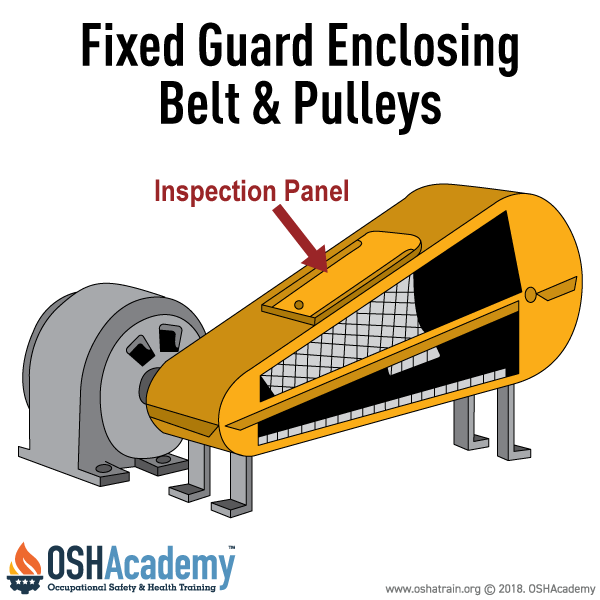Guards
Guards are barriers which prevent access to danger areas. There are four general types of guards:
Fixed Guards
As its name implies, a fixed guard is a permanent part of the machine.
It is not dependent upon moving parts to perform its intended function.
It may be constructed of sheet metal, screen, wire cloth, bars, plastic, or any other material that is substantial enough to withstand whatever impact it may receive and to endure prolonged use.
The fixed guard is usually preferable to all other types because of its relative simplicity and permanence.
| Safeguarding Action | Advantages | Limitations |
|
Provides a barrier |
Can be constructed to suit many specific applications In-plant construction is often possible Can provide maximum protection Usually requires minimum maintenance Can be suitable to high production, repetitive operations |
May interfere with visibility Can be limited to specific operations Machine adjustment and repair often require its removal, thereby necessitating other means of protection for maintenance personnel |
Knowledge Check Choose the best answer for the question.
2-2. Which of the following guards is not dependent upon moving parts to perform its intended function?
You forgot to answer the question!

